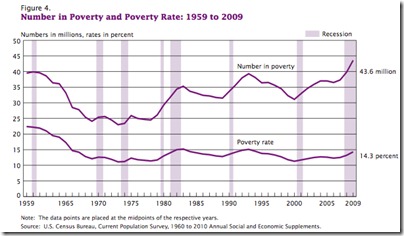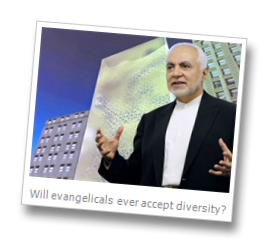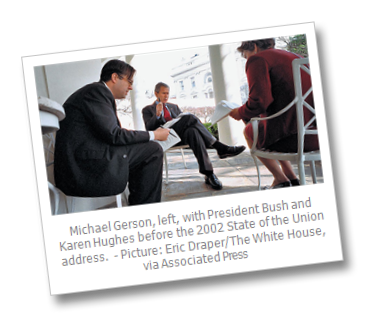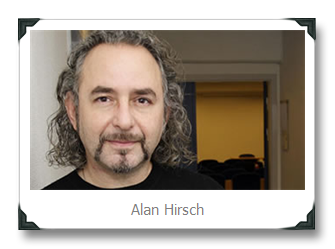My friend and blog sparring partner, Byron Harvey, posted on his blog the full text of David Barton’s defense of Glenn Beck. Barton is an evangelical pop-historian and the founder of Walbuilders, advocating a particular revisionist history of America – one that insists that the United States was founded as a Christian nation. He is a frequent guest on Beck’s program and at Beck events, and teaches his revisionist history at “Beck University.”
Barton has come under a lot of fire recently, because as a fundamentalist Christian, he is not supposed to be explicitly or implicitly condoning Mormonism. So, last Monday on his facebook page, Barton wrote an article entitled, “By Their Fruits.” (again, for the full text, head over to byron-harvey.com).
Barton writes,
"For all those who have asked, thanks for your inquiry and for expressing your concerns about Glenn and his faith. Allow me to address those concerns first by offering some general principles that I find helpful, and then by listing some specific facts that also influence my position."
Barton’s main argument is that you can rest assured that Glenn Beck is a Christian “by his fruit.” He cites Jesus’ words in the Gospel of Matthew, “By their fruit you will recognize them. Do people pick grapes from thornbushes, or figs from thistles? Likewise every good tree bears good fruit, but a bad tree bears bad fruit. A good tree cannot bear bad fruit, and a bad tree cannot bear good fruit….Thus, by their fruit you will recognize them.” (MATTHEW 7:16-20)
Also, he quotes Jesus when he says, “Whoever is not against us is for us.” (MARK 9:40)
Barton writes,
"Let me now make specific application of these verses. In recent months, I have appeared numerous times on Glenn’s program to talk about historical and political issues, particularly as related to faith and Biblical values. On those programs, I have had repeated opportunity to inform Americans about (as our WallBuilders’ motto declares) “America’s forgotten history and heroes, with an emphasis on our moral, religious, and constitutional heritage.” I have also participated in several major arena rallies with Glenn.
As a result of these appearances, I have received numerous letters and calls from concerned Christians, some of whom respectfully inquire as to why I would appear with a Mormon, while others directly attack me for doing so. As far as I can tell, most of these concerns stem from judging Glenn based by the label of “Mormon” rather than by the fruits he produces.
For example, no one has yet been to point to any instance where Glenn has attacked or undermined Christ or Christianity on any of his programs. To the contrary, on repeated occasions it has been quite the opposite. (Recall his specific programs on individual salvation, atonement, and redemption through Christ.) Nevertheless, some of his critics refuse to take Glenn at his self-evident words but instead attempt to read into them some secret and hidden meaning, thereby judging him not by his fruits or words but rather by some conspiratorial and unseen meaning they seek to impute to him.
For Christians concerned about Glenn’s faith, I would ask the following questions:
What fruit do you see produced by Glenn? Good or bad? If you judged Glenn only by the fruits he has produced, would you still hold concerns over his faith?
If you did not know Glenn was a Mormon, how would you describe his religious beliefs?
Is God using Glenn to help recover our national strength and health, both politically and spiritually? If so, why would God be using him?
Does Glenn stir and provoke us to good works? (Hebrews 10:24)
Does he bring to light the hidden things of darkness? (1 Corinthians 4:5)
Does he talk openly about atonement, redemption, and individual salvation through Christ? (I can definitely answer this in the affirmative, for I have seen him do so on numerous occasions not only on his program but also in the rallies where I have personally participated with him.)
Christians concerned about Glenn’s faith should judge the tree by its fruits, not its labels. After all, Nancy Pelosi and Bill Clinton openly call themselves Christians, as do Evangelical Christian ministers such as Jim Wallis and Joel Hunter. Although these individuals have the right labels, they have the wrong fruits; yet many Christians have a more visceral reaction to Glenn than to Pelosi, Clinton, or Wallis. This is wrong; it is not Biblical."
Whoa!
That’s a pretty fancy trick to make a professing Mormon more Christian than professing Bible-believing evangelical preachers (Jim Wallis and Joel Hunter)!
Barton’s argument is basically this: Since Glenn Beck is a libertarian, free-market capitalist, Tea-Party leader who equates America with God’s kingdom and propagates a “return to the good old days,” he is a Christian. While Jim Wallis, who is a liberal, associates with Democrats, and hopes for a better America in the future than what he sees as the past and present days of injustice and inequity (especially in regard to power and economics), is not a Christian. Hey, you will know who is a Christian by their fruits!
Barton ends his defense of Beck with these words:
"In conclusion, I have been with Glenn in numerous settings; I have watched him up close and can heartily endorse both his public and his private life. I have witnessed his tender heart, his love for God, and his passion to keep God in America. Glenn and I have prayed together on numerous occasions; he has sought God for specific guidance on numerous situations and I have personally not only seen God answer him but have also seen Glenn completely change his plans after feeling the Lord was leading him to move in a different direction or address a different subject. I judge Glenn by his fruits, not by his labels, and I am honored to call Glenn not only an ally and a fellow warrior (and a General) in the culture war, but especially to call him a good friend."
News Flash to David Barton: Mormon is not just a “label,” David! It is a whole other religion. And we haven't labeled Glenn Beck a Mormon; he has labeled himself as Mormon. And since he is a confessing Mormon, the “fruits” that you cite cannot be taken as evidence that Beck is actually praying and serving the to One True God.
Isn’t it amazing how we (I include Barton and myself here!) like to define “good fruit” based on our preconceptions? Whether I’m a political conservative or a political liberal, “good fruit” is equated with my particular political ideology. Never mind what Jesus would have us understand “good fruit” being, we already think we know.
This is a sure sign that political ideology has turned into idolatry.
We love to make God into our own image.
_
 What students should do to make college count:
What students should do to make college count:










